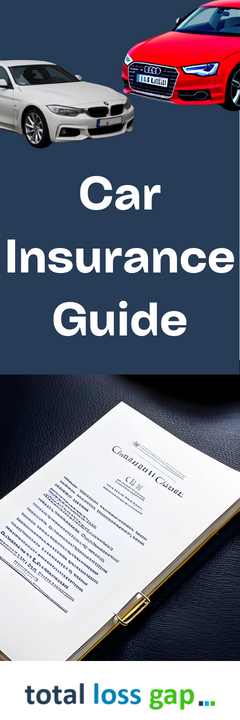Call Monday-Friday 9am - 6pm Closed Saturday & Sunday



[ Contact Us ]
Need Help? Calling from a mobile please call 0151 647 7556
0800 195 4926Do you have a question? or need help?
Call Monday-Friday 9am - 6pm Closed Saturday & Sunday,
Car insurance is an essential aspect of owning your own car and driving in the UK. It provides financial protection in case of accidents and is also a legal requirement. Here, we will discuss the various types of car insurance available in the UK, the factors that affect premiums and tips for choosing the right policy.

In the UK, all drivers must have at least third-party car insurance. This minimum level of coverage ensures that if you cause an accident, the other people's property or party's damages will be covered. Driving without insurance can lead to severe penalties, including fines, penalty points, and even disqualification from driving.
TPO is the minimum legally required insurance coverage. It covers damages and injuries sustained by other parties in an accident caused by you. However, it does not cover damage to your vehicle or injuries.
TPFT is a step up from TPO and includes coverage for fire and theft in addition to third-party damages. However, it still doesn't cover damages to your vehicle in an accident that you cause by your own fault.
Comprehensive insurance provides the most extensive coverage. It includes third-party, fire, and theft coverage, as well as damages to your own vehicle, regardless of who is at fault. Additional benefits, like personal accident cover and windscreen repair, may also be included.
This is often called 'fully' comprehensive car insurance.
To select the best car insurance policy for your needs:
Assess your requirements and the level of coverage you need.
Look at the different levels of cover available and what you want to cover. Comprehensive car insurance is probably your best option if you have an expensive car. If the vehicle is stolen, set on fire or in an accident, you are at least protecting the current market value of the vehicle. Third-Party, or Third party, fire and theft car insurance types do not guarantee you would get any money back for your car in all circumstances.
If you have a cheaper car, the option of Third Party cover or Third Party, Fire and Theft cover could be more cost-effective. With this type of cover, you will at least get some money back if your car is damaged or stolen.
A range of optional add-ons can be added protection to enhance your car insurance policy:
A. Breakdown cover: Assists in case of a vehicle breakdown.
B. Legal expenses cover: Covers legal costs incurred in pursuing claims.
C. Windscreen cover: Covers the cost of repairing or replacing a damaged windscreen.
D. Courtesy car cover: Provides a temporary replacement vehicle while yours is being repaired.
E. No-claims discount protection: Safeguards your no-claims bonus, even after making a claim.
F. Personal accident cover: Offers financial protection in case of severe personal injury or death.
G. Motor Excess Insurance: To protect the costs of paying your excess in case of a claim on your comprehensive cover.
H. GAP Insurance: This can complement fully comprehensive cover by topping up the insurers' settlement if the car is written off following an accident, fire, flood or theft.
Several factors can impact the cost of your car insurance premium:
A. Age and experience: Younger and inexperienced drivers typically pay higher premiums with most insurers. Some specialist insurers provide cover specifically for younger drivers.
B. type and value of the vehicle: Expensive and high-performance cars usually cost more to insure. It makes sense that fully comprehensive cover would be more expensive for a Ferrari than for a Ford Fiesta
C. Location: Areas with higher crime rates or accident rates may lead to increased premiums. Typically cars registered in dense city centres will attract a higher premium than ones in rural settings.
D. Usage and mileage: Higher annual mileage can result in higher premiums. There is more chance you may be in a car accident the more time you spend on the road.
E. Claims history: Drivers with a history of claims may face increased premiums.
The excess is the amount of money you will have to pay towards the cost of a claim if you have an accident or your vehicle is stolen. In the UK, motor insurance policies have two types of excess: voluntary and compulsory.
Compulsory excess is set by the insurance company and is the minimum amount you must pay towards a claim. It is typically based on factors such as the type of vehicle, the driver's age, and driving experience.
Voluntary excess is an amount you choose to add to your policy on top of the compulsory excess. It is an amount that you agree to pay towards the cost of a claim in exchange for a lower premium. The voluntary excess you choose will depend on how much you are willing to pay in the event of a claim and how much you want to reduce your premium.

A: Some insurance policies include a "Driving Other Cars" (DOC) extension, which allows you to drive someone else's car with their permission. However, this coverage is typically limited to third-party only, and not all policies have this feature. It's essential to check your policy documents before driving another person's vehicle.
A: To lower your car insurance premium, consider increasing your voluntary excess, opting for a lower level of coverage, installing security devices, parking in a secure location, taking an advanced driving course, or limiting your annual mileage.
A: A no-claims discount, also known as a no-claims bonus, is a reduction in your car insurance premium based on the number of consecutive claim-free years you've had. The more claim-free years you accumulate, the more significant the discount on your premium.
A: A multi-car insurance policy allows you to insure multiple vehicles under a single policy. This can benefit households with multiple cars, as it often results in discounted premiums compared to insuring each vehicle separately.
A: A black box or telematics insurance policy involves installing a device in your car that records driving data, such as speed, distance, and braking habits. The insurer uses this data to calculate your premium, with safer driving potentially leading to lower premiums.
This is particularly popular with inexperienced young drivers as it can lower annual premiums.
A: Yes, temporary car insurance policies are available in the UK, allowing you to get coverage for a short period, typically from day to day to a few months. This can be useful for situations such as borrowing a friend's car, driving abroad, or using a rental vehicle.
A: You can get car insurance with a provisional driving licence. Insurers offer policies designed for learner drivers, which provide coverage while you are learning to drive under the supervision of a qualified driver. Once you pass your driving test and obtain a full licence, you must inform your insurer to update your policy details.
A: If you move to a different address, notify your insurer; your location can affect your car insurance premium. Failing to update your address could result in invalidating your policy. Your premium may increase or decrease depending on crime rates and parking conditions at your new location.
A: Many insurers in the UK offer car insurance policies for drivers with non-UK driving licences. However, the availability of comprehensive policies and cost of coverage may vary depending on your country of origin, driving experience, and the length of time you have held your licence.
A: Yes, particularly where you may have a rare or classic car.
If you have a classic car, you could get classic car insurance to cover yourself. This typically allows for an agreed value to be set against a comprehensive cover style. This is because trying to assess a market value for your classic car could take a lot of work for you and the insurance provider to agree.
The other key consideration when you look to insure a classic car is that, unlike a standard, modern vehicle, a classic is likely to stay the same value. Setting a fixed value is best for all parties.
You may also be able to find insurance for property damage when you decide to take your car off the road. If you declare your vehicle on a SORN, then you can get laid up cover. If your car is damaged by fire or stolen whilst declared off the road, you can still cover your loss.
Understanding the different types of car insurance available in the UK is crucial to making an informed decision. By considering your needs and comparing policies, you can find the right coverage at the best price. Remember, it's not just about the cost but also the peace of mind that comes with knowing you're protected on the road.